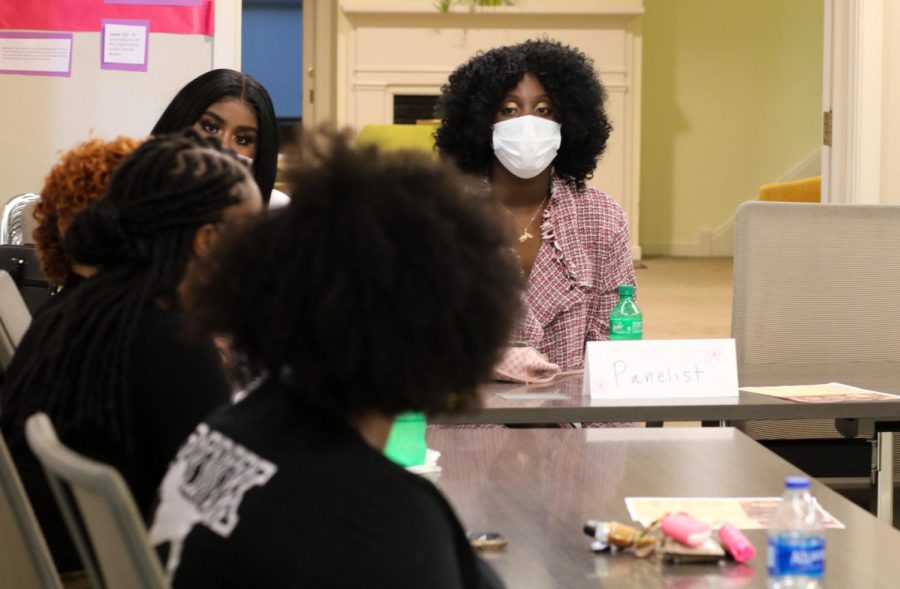Kent State creates forum for “Bad and Boujee” Black women
October 7, 2021
Being “boujee” is subjective and does not look the same for everyone, Yewande Moore, the Student Leadership Coordinator for University Housing, told a group of Black women Wednesday.
“Boujee is just setting a standard for yourself, and letting it be your standard regardless of whatever else is going on around you,” Moore said.
Moore was a panelist for “Where Do Black Women Go… to be Bad and Boujee,” the latest discussion in a series of workshops created by the Kent State Women’s Center. The “Where Do Black Women Go?” series focuses on creating a place for Black women to connect and share their experiences as members of a predominantly white institution.
As someone who navigates predominantly white artist spaces, senior studio art major Ari Bliss said she loves to see the way Black women showcase their art. At gallery openings, she has found Black women “glow,” as they are dressed more lavishly than their peers.
“The way we command our areas, our spaces, it’s so beautiful,” Bliss said.
This beauty can come at a cost. For junior Spanish major and panelist Aniya Calloway, being boujee is expensive. Driven by the culture on social media, particularly Tik Tok and Instagram, Calloway marks 40-inch-long extensions, big eyelashes and long acrylic nails as the key features of a boujee lifestyle. Social media pages like @Bougilations highlight Black women living bold and expensive lives.
“It’s a very hyper-extended view of what we think womanhood is and how we should be presentable and keep ourselves,” Calloway said. “I think we’re beginning to see a turn in how people view it because people are so tired of the upkeep.”
The meaning of “boujee” varies across cultures. For senior fashion design major and panelist Angelique Wong, the word has held a negative connotation at times, especially when she was younger. Rather than describing an elite Black woman, “boujee” was used to mean “stuck up” or “uppity.”
“I think the shift is that it’s now being associated more with words like ‘high class’ or words like ‘luxury’ versus it being a downplay or a speaking down on Black culture and the things that make us unique that have now become trends,” Wong said.
The shift in Black culture is coming as Black people are given a platform to voice themselves.
“I want us as Black women to reclaim it so to speak, in a way, so that it doesn’t have to be this negative thing,” Moore said.
Reegan Saunders is a reporter. Contact them at [email protected].

























